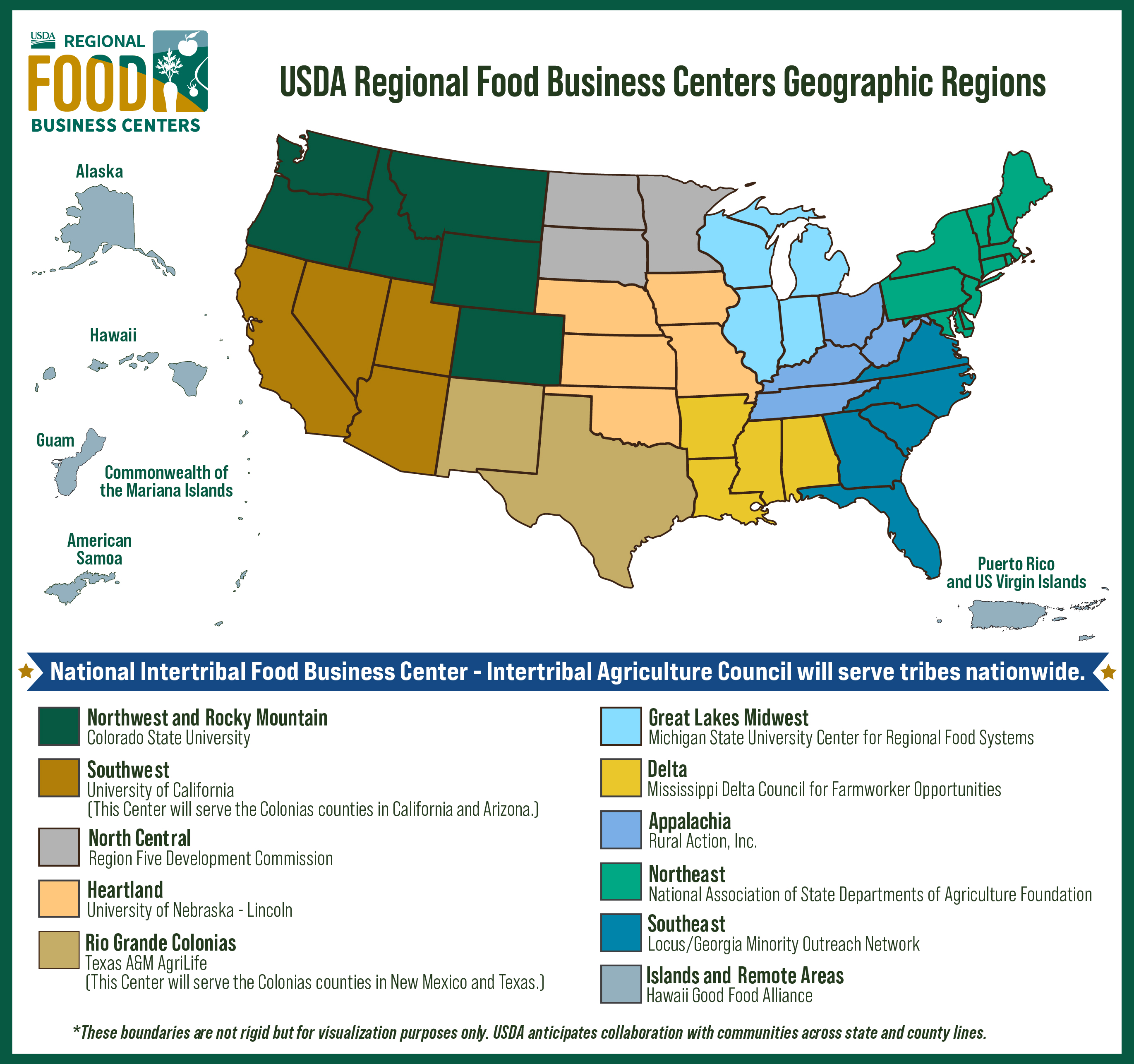Update
On July 15, 2025, USDA announced the termination of the Regional Food Business Centers program, with the exception that current Business Builder grants will continue. More information is available here.
The USDA Regional Food Business Centers support farms and food businesses to create new market opportunities, enhance competitiveness, and strengthen their regional supply chains. In partnership with USDA’s Agricultural Marketing Service, the Regional Food Business Centers are operated by lead organizations and partner networks embedded across each region. They offer technical assistance, capacity building awards, and coordinate services to catalyze the growth of regional food economies. Visit the Awarded Centers webpage for further information.
Regional Food Business Centers administer a subaward program called Business Builder awards. Business Builder awards provide direct financial assistance to farms and food businesses. Awards are made for business, market, and supply chain development projects aimed at increasing business viability, developing regional market opportunities, and expanding supply chain capacity. To learn more about each Center’s Business Builder program, visit the Regional Food Business Center Business Builder webpage.

USDA Regional Food Business Centers will have three main responsibilities:
- Coordination - The Centers act as regional hubs that coordinate across geographic areas, with USDA, other federal, state, and tribal governments. Centers work with local partners to develop and implement public-private partnerships, including technical assistance and funding plans, to serve the specific needs of their region.
- Technical Assistance - The Centers provide technical assistance to small- and mid-sized food and farm businesses (producers, processors, distributors, and other businesses within the food supply chain). Centers also support market development and supply chain coordination. Technical assistance includes guidance, support, assessment, and/or customized training aimed at building capacity to access new markets, increasing viability, or increasing business acumen.
- Capacity Building – The Centers invest in business and market development through Business Builder awards of up to $100,000. Business Builder awards support farm and food businesses which are seeking to increase profitability through market diversification or expansion. These awards may support staff time, business planning activities, software implementation, the purchase includes food safety, processing and packaging equipment, supply chain coordination and innovation, product development, or marketing expenses.
For further questions, visit our list of FAQs or contact us at RegionalFoodCenters@usda.gov

